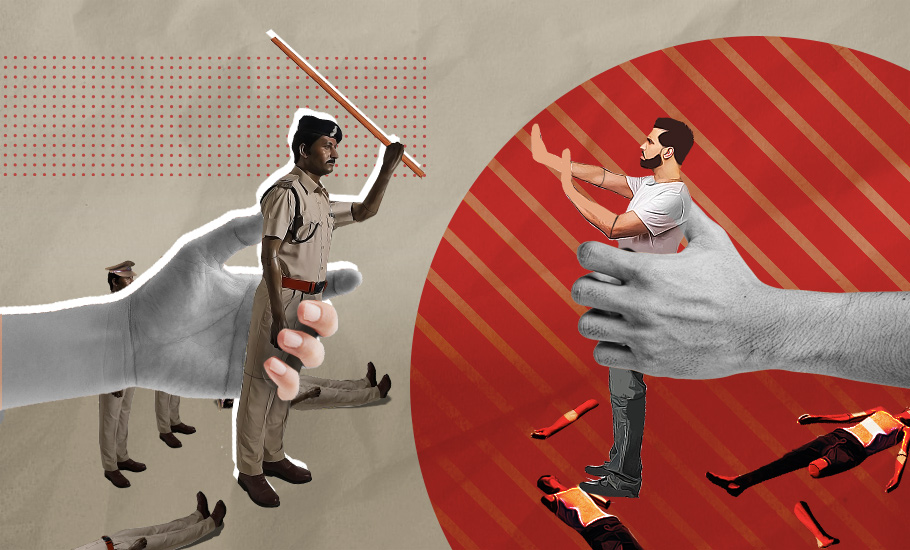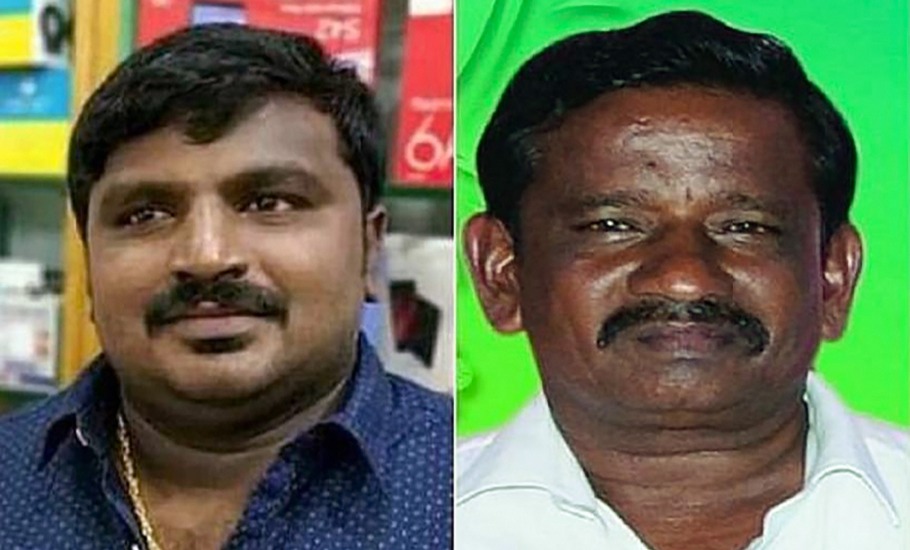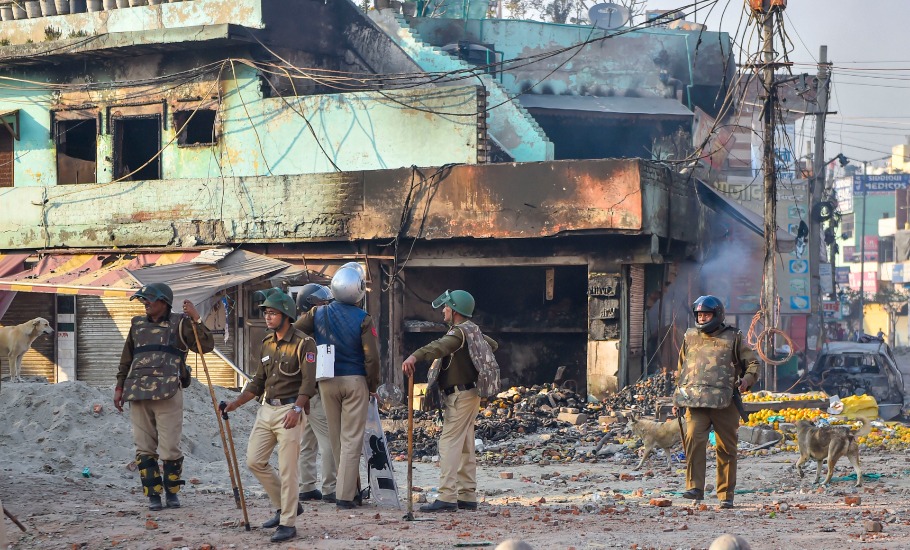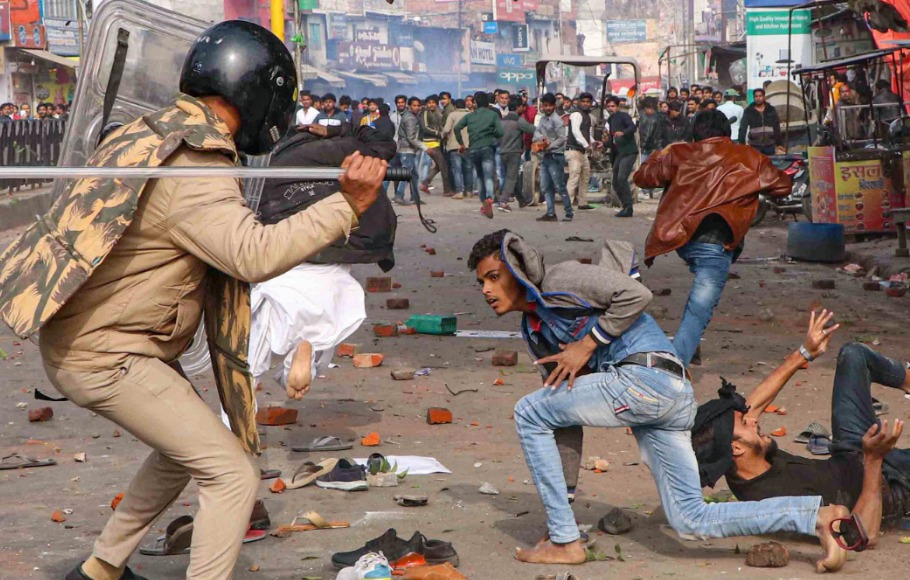
- Home
- India
- World
- Premium
- THE FEDERAL SPECIAL
- Analysis
- States
- Perspective
- Videos
- Sports
- Education
- Entertainment
- Elections
- Features
- Health
- Business
- Series
- In memoriam: Sheikh Mujibur Rahman
- Bishnoi's Men
- NEET TANGLE
- Economy Series
- Earth Day
- Kashmir’s Frozen Turbulence
- India@75
- The legend of Ramjanmabhoomi
- Liberalisation@30
- How to tame a dragon
- Celebrating biodiversity
- Farm Matters
- 50 days of solitude
- Bringing Migrants Home
- Budget 2020
- Jharkhand Votes
- The Federal Investigates
- The Federal Impact
- Vanishing Sand
- Gandhi @ 150
- Andhra Today
- Field report
- Operation Gulmarg
- Pandemic @1 Mn in India
- The Federal Year-End
- The Zero Year
- Science
- Brand studio
- Newsletter
- Elections 2024
- Events
- Home
- IndiaIndia
- World
- Analysis
- StatesStates
- PerspectivePerspective
- VideosVideos
- Sports
- Education
- Entertainment
- ElectionsElections
- Features
- Health
- BusinessBusiness
- Premium
- Loading...
Premium - Events

Unchecked, unquestioned, police atrocities continue
According to NCRB data, between 2001 and 2018 as many as 1,727 people have died in police and judicial custody.

“I say with all sense of responsibility that there is not a single lawless group in the whole of the country, whose record of crime comes anywhere near the record of that organised unit which is known as the Indian Police Force,” said Justice AN Mulla of Allahabad High Court, around a half a century ago. However, nothing much has changed in 50 years. A few weeks back, Jeyaraj and Bennicks,...
“I say with all sense of responsibility that there is not a single lawless group in the whole of the country, whose record of crime comes anywhere near the record of that organised unit which is known as the Indian Police Force,” said Justice AN Mulla of Allahabad High Court, around a half a century ago.
However, nothing much has changed in 50 years. A few weeks back, Jeyaraj and Bennicks, a father-son duo in Sathankulam in Tamil Nadu’s Tuticorin who were picked up for questioning for COVID lockdown violation, were beaten black and blue and sexually assaulted in a police station, resulting in their death.
Coming soon after the case of George Floyd, an Afro-American, who was killed by a white police officer in the US, the killings triggered a massive outrage against police atrocities.
Although Floyd’s killers were dismissed from service and charged with third degree murder, Jeyaraj-Bennicks’ killers were initially only transferred. They were later suspended and an enquiry opened against them only after agitations.
Even before the outrage against the killings died down, police in Uttar Pradesh killed Vikas Dubey, a Kanpur gangster wanted in connection with over 60 cases, in an alleged encounter a day after he was arrested.

Although an FIR has been registered in both cases, there is not much headway into either, and going by the past, it seems unlikely that the erring cops would be brought to justice.
During the Delhi riots in February this year, a video went viral on social media showing how injured men, assaulted by policemen, lying on the street, were made to sing Vande Mataram and the national anthem. One of them, Faizan, later succumbed to injuries.
The shoddiness of police in investigating and filing the FIR was exposed when a HuffPost India report revealed that the FIR makes no mention at all of the video footage, and also contradicted the on-record police statement that he was in custody following the police assault. The FIR recorded that Faizan died after he went missing from a hospital.
Low convictions
According to NCRB data, between 2001 and 2018 as many as 1,727 people have died in police and judicial custody, but only 26 policemen were convicted for the custodial deaths while most of the others were let off, and others are yet to complete trial.
It is only in Tamil Nadu that despite recording over 100 custodial deaths in the same period — the highest among states — that not a single policeman has been convicted. A handful were however convicted and punished for human rights violations.
In 2018, Tamil Nadu recorded 12 custodial deaths, one less than Gujarat, which topped the states’ list. But shockingly, not a single policeman was booked, arrested and chargesheeted. Gujarat, on the other hand, registered three cases and arrested 11 cops.
Apart from the police inquiry and judicial inquiry in custodial deaths, over 2,000 cases of human rights violation were also registered against policemen between 2000 and 2018. However, only 344 cops were convicted in these.
Despite several reforms and police well-being programmes being held in various states in various forms, police continue to show their high-handedness.
Suppressing voices
On April 2, 2011, soon after India won the cricket World Cup, celebrations broke out across the country. Irked by the bursting of crackers, police in Perumanallur village in Tiruppur district allegedly assaulted a group of boys. Veluchamy, a corporation employee then, who saw the incident, questioned the cops, who then took him to the police station and beat him up, resulting in a fracture of one hand and a leg.
“Though they did not make any serious charges, the custodial torture has left me permanently disabled. I could not walk properly even now. It was after this custodial torture, I had to resign from my work in the local body,” Veluchamy says.

Unlike most others, Veluchamy filed a petition against the inspector of the station and the other cops, in the human rights court. But after nine years, Veluchamy is yet to get justice.
“Not even once the court has asked the concerned policeman to appear before the court. They have been continuously asking explanations and adjourning the case, but not once has a single policeman come to the court,” Veluchamy charges.
General Secretary of People’s Union for Civil Liberties (PUCL), S Balamurugan feels that it has become the attitude of the police to assault and harass the people who question them in the public.
Read: Cop drama in the capital: Inside the broken policing system
“The attitude of assaulting a fellow human comes from the impunity they enjoy as police. The government does not take any action against such cops. This attitude is not just to harass the people but to threaten them not to question any policemen of their action,” Balamurugan says.
This was evident from another case that happened in Samallapuram in Tiruppur on April 11, 2017, when a group protested a state-run liquor shop in a residential area. The police charged at the protesters to disperse them, and when, Eswari allegedly questioned the police action, she was slapped by an Additional Superintendent of Police, Pandirajan.
Despite the incident being caught on camera, the policemen and the officer walked scot free and he was even promoted as Superintendent of Police in the subsequent months. Eswari, on the other hand, had to undergo treatment for her an ear injury, and since then, she has lost all courage to fight for people.
A friend of Eswari says she had taken part in the protest as her house was in close proximity to the liquor shop and her husband was a drunkard.
“After the incident, there were several other issues in the locality, but Eswari does not want to represent anymore,” the friend says.
Balamurugan points out that the intention of the police is to suppress the voices and they are able to do it successfully.
Govt’s support
Recalling the three-decade-old case in Vachathi tribal village in Dharmapuri district, where violence was unleashed against tribal inhabitants in the foothills of the Sathyamangalam forest ranges in 1992, Tribal Association vice-president Shanmugam says the government’s negligence to acknowledge and act on it too has encouraged the erring police force.
“When the Vachathi incident was reported, then Chief Minister J Jayalalithaa claimed that no such incident was reported and forest minister KA Senkottaiyan even claimed that it was the people who assaulted the forest personnel. But the subsequent investigations proved that as many as 215 people belonging to the police, forest and revenue department were involved in the crime,” Shanmugam says.

Two decades later, in September 2011, a trial court convicted 215 people in connection with the case, including four IFS officers.
Shanmugam, who was one among the people who worked on the rehabilitation of the people affected in the areas, feels that the aim of the police is to instil fear among the vulnerable people by beating a section of people in the society. “They would do anything to create the fear,” Shanmugam says.
Innocent vs criminal: Pandering to people’s mood
Rights activists, however, note that the outrage against police excesses erupt only when common man or people seen to be righteous are targeted. The same people who are agitating against the custodial death of Jayaraj and Bennicks, would praise the police if they kill a rape or murder accused in an alleged encounter, even before he is tried as per the rule of law.
In December 2019, when a woman veterinarian was brutally raped and murdered in Hyderabad, police killed the four accused men in an alleged encounter, and there was all round praise and encouragement for the act.
Supreme Court lawyer and activist Karuna Nundy had then flagged the encounter, saying without proper trial, “nobody will ever know if the four men killed by the police were innocent men” and “whether four of the most brutal rapists roam free, to rape and kill more women”.
Wake up call for people
Former Madras High court judge Justice (retd) D Hariparanthaman, however, feels that the outrage of the people against the police in Jeyaraj-Bennicks case is a good sign.
“Although there have been several incidents of police excesses in the past, even on innocent people, the people have not expressed their concern and have normalised it. But over a period of time, people have got some kind of awareness and now they have woken up,” he says.
When asked about the lapses in the judiciary and police department, he says the law would be implemented properly only if people raise questions.
“A number of laws that were passed have not been implemented and new laws are brought in after the people take to the streets. Now that people are becoming aware, (authorities), let it be the doctors who give fitness certificates or the magistrate who sends the accused to prison, will be cautious and will act as per the procedure,” Hariparanthaman says.
Making a point, former state DGP SK Dogra feels that the entire police department cannot be blamed for the acts of a few men. “Though nobody intended to behave rudely with the people, some policemen behave so. They should be given counselling and therapy,” he suggests.
He also notes that the cops should not use reasons such as low manpower and overwork as excuses
On the other hand, Dogra says people should also behave in a disciplined way. “People should also understand the police and behave in a disciplined way. It would be easy for the police to implement law and order, especially in a time of crisis like this,” he says.
